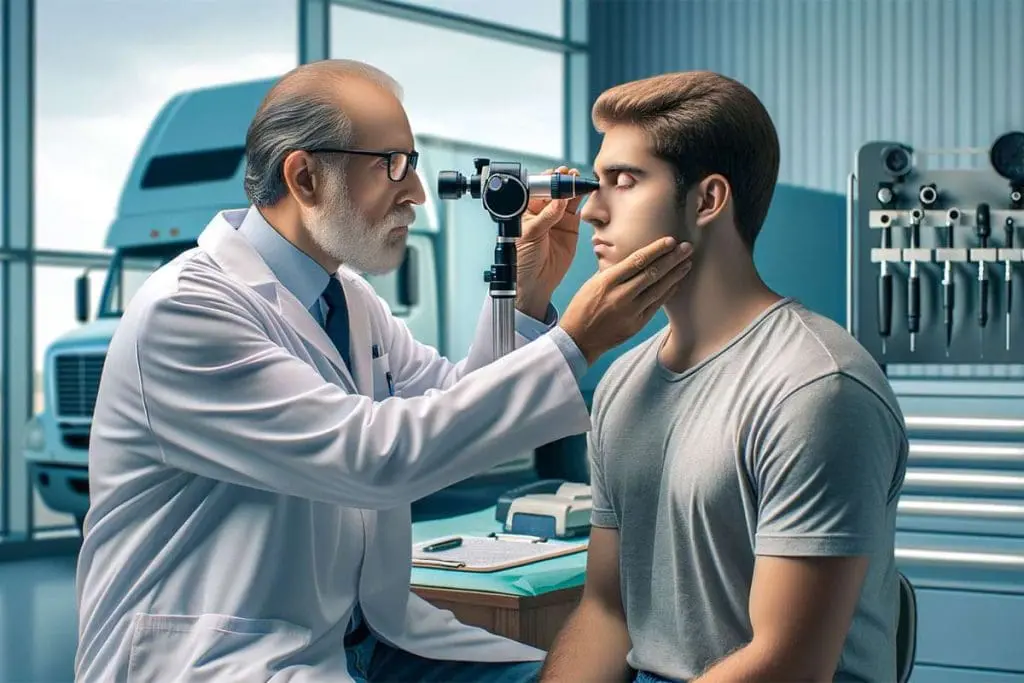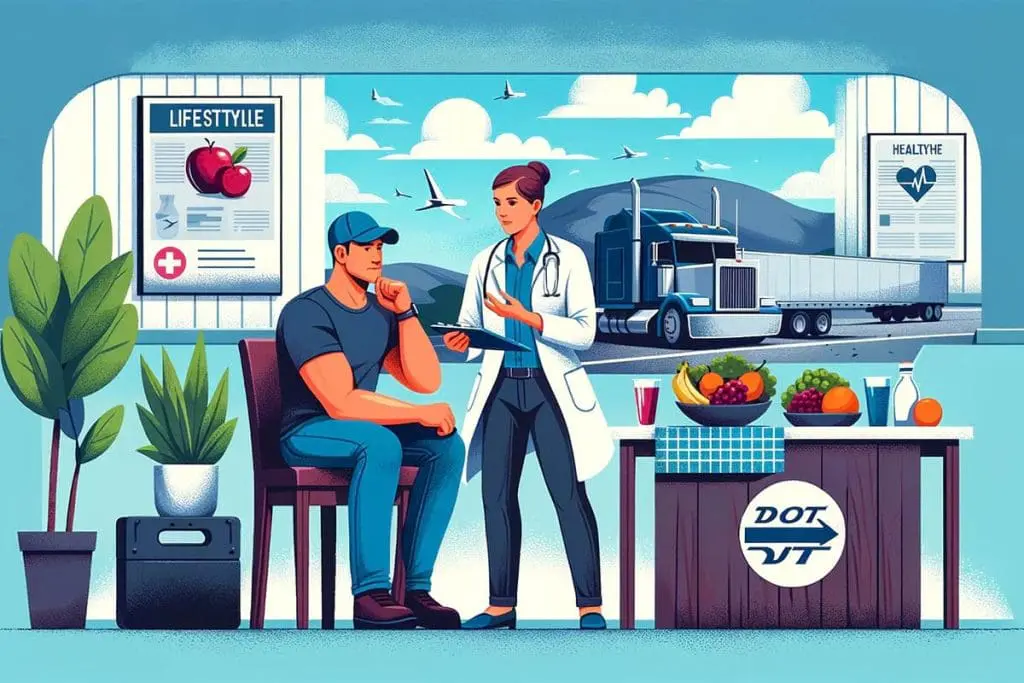DOT physicals ensure the health and safety of commercial vehicle (CMV) drivers and the public. These physicals often involve the disclosure and handling of an employee’s private medical information as well as drug and alcohol testing results, which raises questions about Health Insurance Portability and Accountability Act (HIPAA) laws.
However, the rules around HIPAA and DOT physicals are not clear-cut. Although DOT physicals are confidential, DOT law allows any employer or service agent in the DOT drug and alcohol testing program to disclose testing information without the employee’s authorization.
This blog explains medical privacy in the context of HIPAA and DOT physicals, potential overlaps and conflicts, and when drug and alcohol testing information can be disclosed.
Table of Contents
Understanding HIPAA

HIPAA is a federal law that establishes standards to protect sensitive patient health information from being disclosed without the patient’s knowledge or consent.
The U.S. Department of Health and Human Services (HHS) issued a HIPAA Privacy Rule to implement HIPAA requirements. The rule’s standards address the use and disclosure of protected health information (PHI) by covered entities. HIPAA also outlines standards for an individual’s right to understand and control how their health information is used.
The Privacy Rule aims to ensure the proper safeguarding of individuals’ health information while facilitating the necessary flow of such information to deliver and enhance high-quality healthcare. Additionally, it seeks to safeguard public health and well-being.
The Essence of DOT Physicals

A DOT physical exam is required for people who drive commercial motor vehicles (CMVs). To ensure the safety of the public, the Federal Motor Carrier Safety Administration (FMCSA) rules mandate that drivers are physically, mentally, and emotionally fit to perform this demanding role.
A driver must participate in a physical – which includes a drug and alcohol test – to maintain a valid commercial driver’s license (CDL). The exam is valid for 24 months.
Key Requirements for a DOT Physical
A medical examiner performs DOT physicals. During a DOT physical, an employee or job candidate will undergo a series of medical checks and tests including the following:
- Vision
- Hearing, blood pressure, and heart rate
- Urinalysis
- Physical examination (eyes, skin, general appearance, lung and chest function, neurological indicators, limb function, and more).
- Drug and alcohol test
- A sleep apnea test may also be ordered.
The medical examiner will also inquire about family history, medications, tobacco use, and current health problems.
HIPAA and DOT: Where They Intersect
HIPAA privacy laws protect the confidentiality of patient medical records and PHI.
In most cases, an employer or service agent participating in the DOT drug and alcohol testing process is prohibited from releasing individual test results or medical information to third parties without the employee’s written consent.
However, there are exceptions. Medical professionals and facilities involved in the testing process, such as laboratories and Medical Review Officers (MROs), do not need an employee’s written authorization to disclose drug testing information. That’s because, technically, anyone undergoing a drug and alcohol test is not a patient, but a donor. The test is also not considered a medical examination or diagnosis and is not concerned with the preventative, therapeutic, rehabilitative, or mental health of a patient. A DOT drug test is a forensic screening test used to determine if an individual meets DOT safety requirements for operating a CMV.
This conflict often creates confusion among employers and employees who wonder: “Are DOT physicals confidential?” and “Are drug test results confidential under HIPAA?”
Disclosing Drug and Alcohol Testing Information

DOT drug and alcohol testing information can be disclosed without violating HIPAA rules under the following conditions:
- Where disclosing the information is required by the DOT’s rule 49 CFR Part 40 which describes procedures for conducting workplace drug and alcohol testing for the federally regulated transportation industry.
- Even if drug and alcohol testing information is considered protected under HIPAA rules, employers are not required to obtain written consent from employees if the DOT requires disclosure of this information under the 49 CFR Part 40 rule. Among other things, this means that:
- Screening test technicians and laboratories can report results to MROs without the written consent of the employee.
- MROs can also report results to employers, discuss results with prescribing physicians, and confer with Substance Abuse Professionals (SAPs) and evaluating physicians, without the employee’s consent.
- Employers and service agents can also release testing information to requesting federal, state, and local agencies that have regulatory authority over them or their employees.
Furthermore, during claims litigation following a CMV accident, a claimant can request DOT physical information and medical examiner certificates of the driver involved.
Practical Implications
Drivers who undergo drug and alcohol testing as part of a DOT physical must understand the subtle interpretations of the law. In certain instances, DOT regulatory requirements that govern the safety of drivers and the public take precedence over HIPAA medical privacy and PHI confidentiality rules.
As such, CMV drivers must understand that any testing information can be shared with a prospective or current employer, MROs, and regulatory bodies. This information can be a deciding factor in whether a driver can obtain or retain a CMV license, or even be removed from duty.
Drug and alcohol testing history may also follow an individual to a new employer – if the individual agrees to the release of that information.
Addressing Common Questions About HIPAA and DOT Physicals

What does a DOT physical mean in medical terms?
A DOT physical is a medical and screening examination that is performed in accordance with DOT rules. A DOT physical screens employees of covered entities, such as trucking companies, to ensure they can operate a commercial vehicle safely. The exam reviews an individual’s physical health and includes certain tests, such as DOT drug and alcohol testing.
Are DOT physicals confidential?
DOT physicals are confidential, but DOT law allows any employer or service agent in the DOT drug and alcohol testing program to disclose testing information to employers and medical professionals involved in the testing process without the employee’s authorization.
Balancing HIPAA and DOT Physicals
DOT physicals are an essential part of occupational health and safety in industries regulated by the DOT. However, employers and employees must understand the applicability of medical privacy laws, like HIPAA, and when and how DOT regulations override those laws.
Acuity can help employers navigate the complexities of DOT physicals while ensuring compliance with HIPAA rules.
We offer a wide range of workplace DOT physical exam services, including pre-employment, random, reasonable suspicion, DOT drug and alcohol tests, return-to-duty, and follow-up tests.
These services are backed by advanced technology and a widespread provider network to give employers 24/7 access to scheduling, testing status notifications, case management reporting, and more.
Learn more about Acuity’s comprehensive portfolio of Occupational Health Services.
